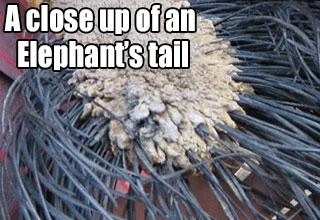Steam or Hot Water? The Ultimate Guide to Selecting the Best Heating Coil

Are you tired of shivering in the icy winter months? Do you dream of a cozy and warm home where you can escape the biting cold outside? Well, look no further! In this ultimate guide, we will dive deep into the world of heating coils to help you make an informed decision between steam or hot water. Get ready to unravel the mystery behind these two heating systems and discover which one is truly the best for your home. Say goodbye to freezing nights and hello to the perfect temperature with our expert advice!
Understanding Heating Coils: Steam vs. Hot Water
Heating coils play a crucial role in various heating systems, but there are two common types that often cause confusion: steam coils and hot water coils. Understanding the differences between these two can make all the difference in choosing the right system for your needs.
First, it's important to note that steam coils operate at higher temperatures compared to hot water coils. This means that steam can carry more heat energy and is generally more efficient in transferring heat. On the other hand, hot water coils require less pressure and are typically cheaper to install and maintain.
Additionally, each type of coil has its own advantages when it comes to specific applications. Steam coils are ideal for industrial processes requiring high-temperature heating, such as food processing or chemical manufacturing. Hot water coils, on the other hand, shine in applications where precise temperature control is necessary, like HVAC systems or residential heating.
By understanding the differences between steam and hot water heating coils, you can make informed decisions about which system is best suited for your needs. Whether you prioritize efficiency or temperature control, knowing the strengths of each type of coil will ensure optimal performance from your heating system while also saving on costs in installation and maintenance. Ultimately, choosing the right coil will keep you warm and cozy without breaking the bank
Factors to Consider When Choosing a Heating Coil
When it comes to choosing the right heating coil, there are several factors that need to be carefully considered. Firstly, the material of the coil is crucial as different materials have varying heating properties and durability. For example, stainless steel coils are known for their excellent resistance to corrosion and high temperatures, making them a popular choice for industrial applications. On the other hand, nickel-based alloys offer better heat transfer and can withstand extreme conditions.
Secondly, the size and shape of the heating coil should align with your specific requirements. If you need a coil for a large-scale heating system, it’s important to choose one that has enough surface area to efficiently transfer heat. Additionally, considering factors such as wattage density and voltage will allow you to select a heating coil that can provide adequate power output without causing any overload issues.
Lastly, thermal conductivity is another key factor that shouldn't be overlooked when choosing a heating coil. High thermal conductivity enables efficient heat distribution throughout the entire coil surface, ensuring uniform heating across your application. This can be especially critical if precision temperature control is required or if variations in temperature could affect your process or product quality.
In conclusion, when selecting a heating coil, it’s essential to evaluate various factors such as material composition, size and shape suitability as well as thermal conductivity capabilities. Taking these aspects into account will help ensure optimal performance and durability of your chosen heating solution in any given application
The Quest for Efficiency: Finding the Best Boiler Coil
When it comes to the efficient functioning of a boiler system, finding the best boiler coil is crucial. The right coil can improve energy efficiency and reduce operational costs, ensuring optimal performance and longevity of the entire system. However, selecting the perfect coil for your boiler can be a daunting task, given the wide range of options available in the market today.
One important factor to consider when looking for the best boiler coil is its material composition. Different materials have different thermal conductivity properties that can significantly impact heat transfer efficiency. For instance, stainless steel coils are known for their high resistance to corrosion and durability, making them an excellent choice for applications in corrosive environments. On the other hand, copper coils offer better heat transfer capabilities but may require more maintenance.
Conclusion
In conclusion, when it comes to selecting the best heating coil for your needs, there are several factors to consider. Both steam and hot water coils have their own advantages and disadvantages, so it is important to carefully evaluate your specific requirements before making a decision. Consider factors such as temperature requirements, energy efficiency, installation costs, and maintenance needs. Additionally, consulting with a knowledgeable HVAC professional can provide valuable insights and guidance throughout the selection process. By taking the time to thoroughly assess your needs and gather expert advice, you can confidently choose the heating coil that will meet your specific requirements and ensure optimal performance for years to come. Don't settle for less than the best – make an informed decision today!






0 Comments